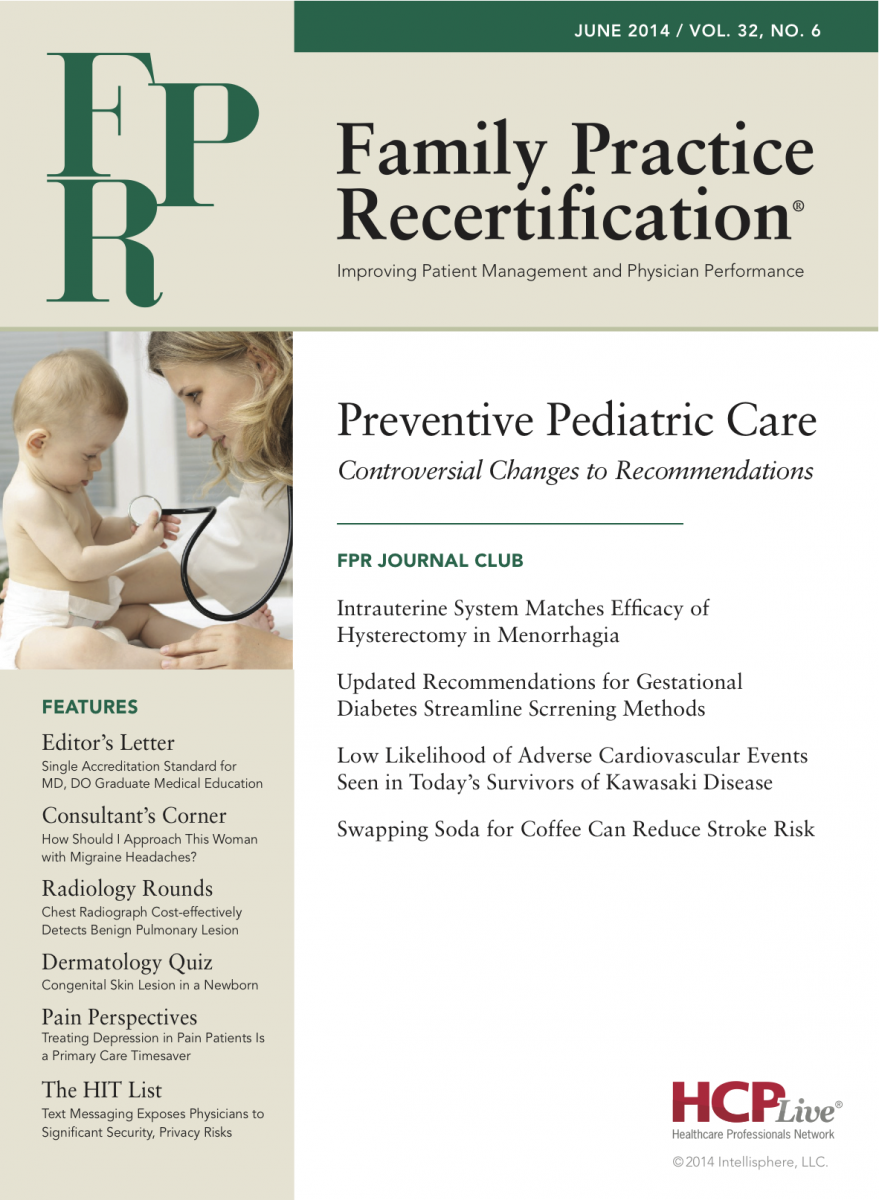Low Likelihood of Adverse Cardiovascular Events Seen in Today's Survivors of Kawasaki Disease
Though it once led to major adverse cardiovascular events, Kawasaki disease has evolved into a condition that is routinely overcome without significant morbidity.
Review
Holve TJ, Patel A, Chau Q, Marks AR, Meadows A, Zaroff JG. Long-term cardiovascular outcomes in survivors of Kawasaki disease. Pediatrics 2014 Feb;133(2): e305-11.
http://pediatrics.aappublications.org/content/early/2014/01/15/peds.2013-1638.abstract.
Study Methods
This case-control study examined North American patients aged older than 15 years who had been diagnosed with Kawasaki disease (KD) before age 5 and treated with a modern medical intervention of intravenous immunoglobulin (IVIG) and aspirin. Data was culled from the Kaiser Permanente Northern California population database to determine long-term cardiovascular (CV) outcomes from KD, as well as identify KD subgroups for future adverse CV outcomes.
Intervention and Control
A comparison group of patients with no history of KD was established by matching gender, age, medical service area, and cumulative membership in the Kaiser Permanente system to those in the intervention group. After the patients were identified, 2 independent physicians conducted chart reviews to discern treatments used at the time of diagnosis, long-term treatments used more than 6 months after diagnosis, and coronary involvement if echocardiogram data was available.
Long-term CV outcomes and all-cause mortality in both groups were identified using ICD-9 codes and publicly available databases.
Results and Outcomes
A total of 546 patients diagnosed with KD before age 5 and 2,218 matched controls met the study’s inclusion criteria.
A primary analysis revealed 2 KD patients experienced adverse CV events after age 15, compared to 7 adverse events in the control group; however, the difference was nonsignificant. A secondary analysis uncovered an additional 3 adverse events that occurred before age 15 the KD group.
Of the 5 total adverse events identified in the KD cohort, the majority occurred in those with echocardiograms displaying persistent coronary aneurisms following treatment. In fact, a primary analysis discovered KD patients with persistent coronary aneurisms experienced adverse events after age 15 at a rate of 8%, compared to 0% among those without them, while a secondary analysis found the rate of adverse events occurring anytime after KD diagnosis was 15% for those with aneurisms and 0.2% for those without them.
Conclusion
The vast majority of adult patients diagnosed with KD before age 5 had equal morbidity and mortality rates as their age- and gender-matched peers. Long-term adverse CV effects occurred most often in a small subgroup of KD patients who had persistent coronary aneurisms following treatment.
Commentary
Though it once led to major adverse CV events, KD has evolved into a condition that is routinely overcome without significant morbidity. In fact, many of the cardiac outcomes attributed historically to KD had been detailed before the advent of a modern treatment regimen consisting of high-dose aspirin administered in divided doses and IVIG administered 7-10 days before fever onset.
This study’s large size and long chart review period support its evidence of an extremely low likelihood of adverse outcomes in KD patients treated with the modern regimen, which offers guidance to clinicians who provide continuity care for KD patients. Further study is needed to understand the mechanisms and adverse event profiles of the subgroup of KD patients with persistent coronary aneurisms following standard aspirin and IVIG therapy.
About the Authors
Emily Chen, MD, is a recent graduate of the University of Massachusetts Medical School (UMMS) in Worcester, MA.
She was assisted in writing this article by Frank J. Domino, MD, Professor and Pre-Doctoral Education Director for the Department of Family Medicine and Community Health at UMMS and Editor-in-Chief of the 5-Minute Clinical Consult series (Lippincott Williams & Wilkins).
